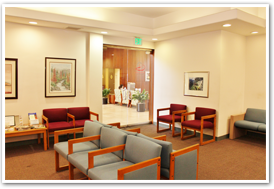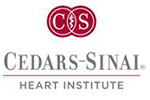We are conveniently located in West Hills, CA


PROCEDURE
An intravenous (IV) catheter will be placed in your arm in order to administer medications or fluids during the test. Electrodes will be placed on your chest to monitor your heart. A blood pressure cuff is placed on your arm to monitor your blood pressure. You will lie flat on a special table with straps over your body and thighs to hold you in place. The table will slowly move you from lying flat to almost standing upright.
Your heart rate and blood pressure will be checked while you are lying flat for about 15 – 20 minutes. The head of the table will then be elevated or tilted 60 to 80 degrees for 15 – 20 minutes. If the test does not bring on any symptoms, you may be given a medication to make your heart beat faster, as if you were exercising. In this case, you may be tilted more than once during this test. Any medications used during the test will leave your system within 15 minutes.
It is important to report any symptoms that you may experience, such as dizziness, overall weakness, palpitations, nausea, sweating or light headedness, or any other symptoms you have when you faint.
PATIENT INSTRUCTIONS
- Do not eat or drink anything after midnight the night before the exam.
- Do not ingest any stimulants for 24 hours BEFORE the test. This includes coffee, tea, and cola drinks.
- If you are diabetic, you may eat a light breakfast and/or lunch.
- Wear loose fitting, comfortable clothing.
- Do not wear necklaces or clothing with metal on it (metal buttons, sequins, brooches, etc.).
- If you have asthma presently or previously, bring your inhaler(s) with you.
- Bring a list of your medications with you.
- Take your usual morning medications on the day of your test unless directed by your physician.
LENGTH OF TEST
The test will take approximately 1 to 2 hours.
Click Here for PDF







